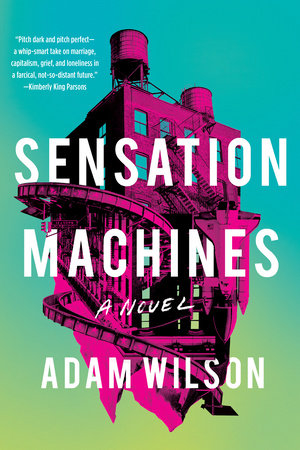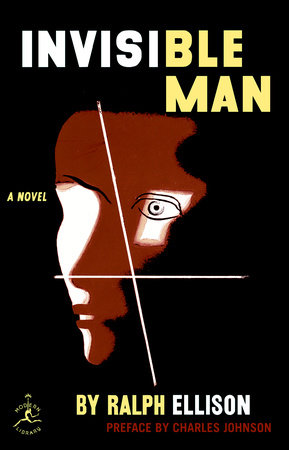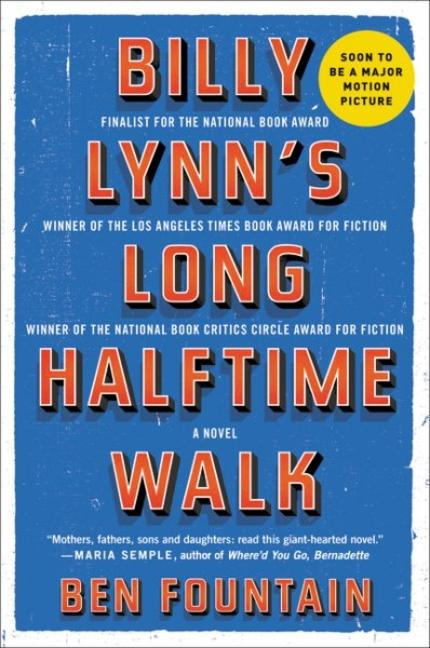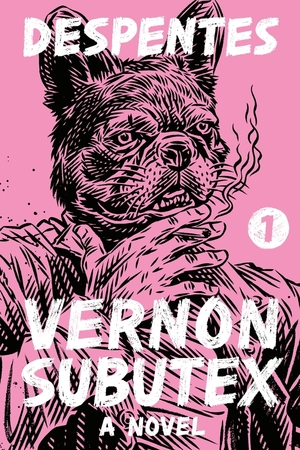Electric Lit relies on contributions from our readers to help make literature more exciting, relevant, and inclusive. Please support our work by becoming a member today, or making a one-time donation here.
.
I started writing my new novel, Sensation Machines, during a moment of social upheaval—the rise of the Occupy movement—and completed it in the wake of what felt like the ultimate symbol of that movement’s inefficacy, the election of Donald Trump. Perhaps inevitably then, the final product presents something of a jaundiced worldview. The book’s protagonists, Michael and Wendy Mixner, are married Brooklynites who work in finance and marketing, respectively. They see themselves as people with progressive values, but when those values are tested, they learn that they would rather be complicit in an unjust system than risk their class status and disrupt their comfortable lives. In many ways it is a book about the lengths we go to achieve cognitive dissonance. The novel’s satirical takes on technology, marketing, finance, and criminal justice are intended to be comic, but the satire is also meant to reveal the ways that the rooted imperatives of American capitalism act as structural impediments to progress.
Of the responses I received when the book went out on submission, one in particular gave me pause. The reader liked my writing, but suggested that, in this bleak moment, fiction should offer at least a glimmer of optimism, and my novel did not. I agonized over this response, worried that this reader was correct, that my novel’s vision of America was too cynically bogged down in despair. But the more I thought about the satirical novels I admired, the more it seemed to me that the satirist’s job isn’t only to hold a mirror up to society, but also to warp its reflection so that readers must uncomfortably confront our own grotesquerie.
Though tonally and stylistically varied, the books below all revel in this brand of discomfort. They are funny novels, some uproariously so, but they are also books that push us out of complacency by prying our eyes open and forcing us to stare at our ugliest selves.
Invisible Man by Ralph Ellison
Invisible Man came out in 1952, but I can’t think of a text more relevant to the current moment than Ellison’s trenchant examination of racial injustice in America. From the absurdity of college admissions to the internal politics of protest movements, nothing evades Ellison’s satirical crosshairs. Returning to the novel twenty years after first reading it in high school English, what strikes me most is how boldly it defies classification. Combining comic farce with psychological realism, and moving fluidly between tonal registers, Ellison expertly manufactures readerly discomfort by refusing to signal when or if it’s appropriate to laugh.
Oreo by Fran Ross
Oreo was all but ignored upon its original publication in 1974, and I can see why. Published at the peak of the Black Power Movement, this experimental novel about a biracial woman on a Homeric quest to track down her Jewish father intrepidly pushed against the grain of the zeitgeist. As Mat Johnson explains in a 2011 NPR piece:
“A novel about a biracial woman’s search for her Jewish identity, complete with Yiddish word jokes and a structure based around Greek mythology, was about as far away from what was expected of a black writer as possible.”
On top of that, Oreo is one of the most stylistically unorthodox books I’ve ever read; the closest comparison I can think of is The Crying of Lot 49, but reimagined as a Richard Pryor routine. It also happens to be one of the funniest, a novel whose very subject—cultural admixture—fuels its virtuosic joke-making and feverish wordplay. Ross draws from Yiddish and Black Vernacular English, but also from academic jargon, hippie slang, restaurant menus, and mathematical notation to produce a sui generis carnival of diversity.
Omon Ra by Victor Pelevin
A Cold War-era sendup of the Soviet space program, this short novel is difficult to discuss without giving away spoilers, as it hinges on a shocking plot twist that radically alters the reader’s understanding of the story. What I can say is that I’ve never quite read anything like it, a political parable that is not only scathing in its critique of Soviet nationalism, but is also both hilarious and improbably poignant.
Jamestown by Matthew Sharpe
In this wildly imaginative novel, Sharpe flips America’s foundational myth on its buckle-hatted head. Set in a “post-annihilation” future, Jamestown is less a reimagining than a straight-up remix, and its Pocahontas is like nothing we’ve seen, a cellphone-savvy, unapologetically foul-mouthed 19-year-old who spends her lonely evenings writing blog posts in a cornfield “under the twilit sky that looks like a day old bruise on the thigh of a woman whose body is five hundred times bigger than the world.” Sharpe’s masterful fusion of the poetic and the vulgar is what carries the novel through its heights of absurdity. The result is irresistible, social commentary wrapped in riotous comedy.
Slumberland by Paul Beatty
Paul Beatty is best known for his Booker Prize-winning 2015 novel, The Sellout, and his cultishly admired 1996 debut, The Whiteboy Shuffle. Both are great, but so are Beatty’s other novels, Tuff and Slumberland. I’m especially fond of the latter. Set in Berlin just after the fall of the Wall, Slumberland chronicles the adventures of a “jukebox sommelier” in search of a lost avant-garde jazz musician. The novel opens with what is certainly the funniest riff on tanning salons ever put to print, and keeps moving with the speed and precision of a NASCAR racer navigating the Autobahn. Beatty’s prose is pyrotechnic, and the joke-to-page ratio is unprecedented, but Slumberland also offers profound insights on expat culture and the end of The Cold War.
Billy Lynn’s Long Halftime Walk by Ben Fountain
I resisted this novel when it first came out. I thought the title sounded corny and the book seemed overhyped. I’m glad I eventually gave it a chance. Not only is Fountain’s novel a) an absolutely vicious skewering of the mass infomercial that is NFL football, and b) the best Iraq war novel I’ve read, and among the best war novels I’ve read, period, but it’s also c) the only novel I know of in which Beyoncé appears as a character. Quite frankly, more novels should feature Beyoncé as a character. Fountain offers a master class in how to write humanely—tenderly even—without dulling one’s satirical teeth, and his novel gives new life to that dusty bromide about opposing the war but supporting the troops.
The Mere Future by Sarah Schulman
At first glance, Sarah Schulman’s near-future New York is not dystopic, but utopic. The city is affordable ($50-60/month for a studio, $200/month for a 4-bed), homelessness has been eradicated, and Staten Island has been annexed to Texas. The tradeoff for this apparent paradise is compulsory allegiance to a media conglomerate that offers citizens the illusion of freedom while it sells them homogeneity at irresistible prices. This is Brave New World for the Internet era: instead of drugs to keep us complacent, we have Instagram, Facebook, and Amazon Prime. As Schulman explains,
“Sometimes, come the revolution, we all eat strawberries and cream. Sometimes, come the revolution we only eat strawberries and cream. What if you don’t like strawberries and cream? Sometimes, come the revolution, we have to eat strawberries and cream.”
Vernon Subutex 1 by Virginie Despentes
The first novel in this fantastic trilogy follows a diverse array of Parisians—film execs, bounty hunters, musicians, and sex workers—as they search the streets for our eponymous antihero, a former record store proprietor reduced to homelessness now that his sole marketable skill—selling vinyl—has been rendered obsolete. Despentes’ tracks Gen X’s descent into cultural irrelevance to both comic and tragic effect. In doing so, she paints a politically nuanced portrait of a Europe in flux. It’s the book Michel Houellebecq might write if he were a woman and had better politics.
Trump Sky Alpha by Mark Doten
It takes serious guts—and serious chops—to open a novel from the perspective of our current president as he floats over America in an “ultraluxury zeppelin”, dropping nukes left and right. Mark Doten has both, and Trump Sky Alpha—which jumps ahead into the post-apocalyptic future where a journalist attempts to uncover the final memes before The Cloud went dark—is quite a feat. A mimic of the highest order, Doten has an impeccable ear, not only for Trump’s tics and tautologies, but for the vernacular of online culture, its strange, associative logic. Doten takes a premise that sounds like an SNL skit, and turns it into so much more, a book as terrifying as it is hilarious in regards to both our current moment and our prospects for the future.










